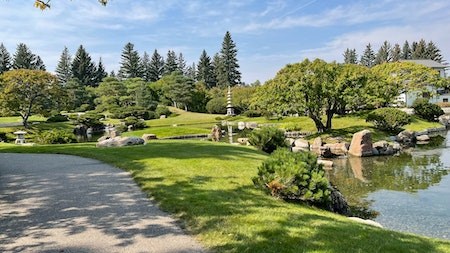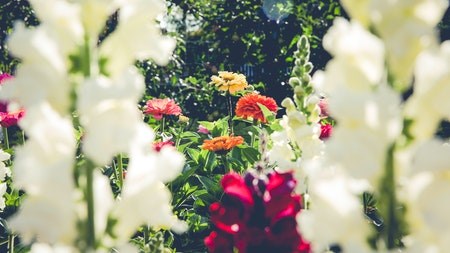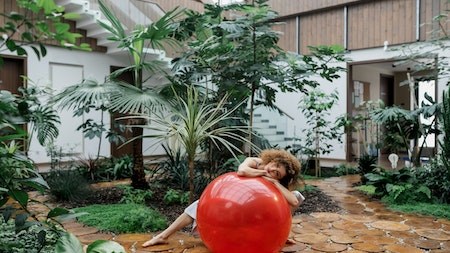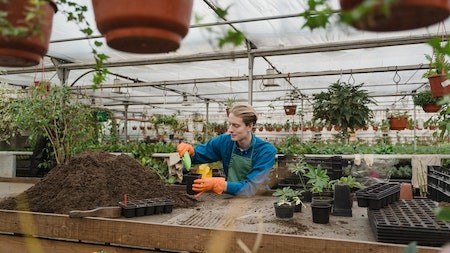Everyone has different tastes when it comes to colours, types of plants and garden arrangements. However, some techniques have broad appeal.
Here are some of the most popular ways to make your outdoor space more environmentally friendly and appealing all year round.
Layers
You need to arrange the different elements of your garden to simulate the natural environment, with layers at various heights. Then, try to match this structure, considering the health of plants in your garden at each level.
- Groundcovers are closest to the ground and vary in height from 1 cm to around 15 cm.
- Grasses come in a wide range of heights, colours and textures and deserve space in any garden.
- Annuals and perennials provide colour and form a backdrop for focus plants.
- Shorter and taller shrubs are the ‘bones’ of the garden and can make striking features.
- Trees of varying heights in the top layer will tie the look together and provide bird nesting and resting space.
Timing
Most gardens can accommodate different kinds of plants with bloom times throughout the year, from one spring to the next. If you grow plants with various flowering periods, you will have colour in your garden for most of the year.
Most garden plants flower in spring and summer, but many that also flower in the year’s cooler months. For colour in winter, plant aloes, ribbon bush, kniphofia, azaleas, strelitzia, proteas, camellias, daisies and snapdragons will do just fine.
Mood
Mix different textures, scents, and plant sizes to create your desired mood in various parts of your garden.
You don’t always have to use many different plant species to achieve a textured look. The various types of sage, for example, come in a range of colours from deep purple, red and pink to white.
Pollinators
Pretty flowers in your garden do more than provide colour. They also attract small creatures like birds, bees, butterflies and other beneficial insects. An easy way to attract wildlife is to grow flowers and other plants that naturally occur in their habitat.
Butterflies and many other pollinators like to bask in the sun, and some of their favourite wildflowers grow best in partial or full sun with some protection from the wind.
Birds will also appreciate a bird feeder, and ground-level birdbaths are frequented by birds as well as other small animals.
Providing protection from harsh weather will help attract more pollinators and encourage them to visit.
Vegetables
Adding vegetables and herbs to your garden will provide more interesting plants in your outdoor space. In addition, you will be able to look forward to harvesting fresh fruits and vegetables for the kitchen.
You don’t need a dedicated vegetable patch in your garden. Mixing vegetables and herbs with flowers can increase garden yields and flower production. The flowers tend to increase nectar production, attracting more beneficial insects that protect edible plants and pollinators that increase flower production.
Certain vegetables - onions, for example - can help keep aphids away from roses and hibiscus. Likewise, marigolds can deter snails around tomato plants, and placing petunias with beans will repel bean beetles.
Water features
The sound of moving water is relaxing and creates a tranquil mood. An attractive water feature will give your outdoor space instant charm and character and will be appreciated by birds and small animals.
You don’t need an elaborate fountain - adding a basic water feature will do just as well.
The guidelines listed above are sufficient for landscaping your outdoor space efficiently and cost-effectively.
Writer : Sarah-Jane Meyer




